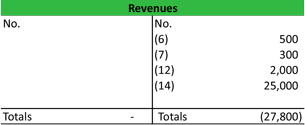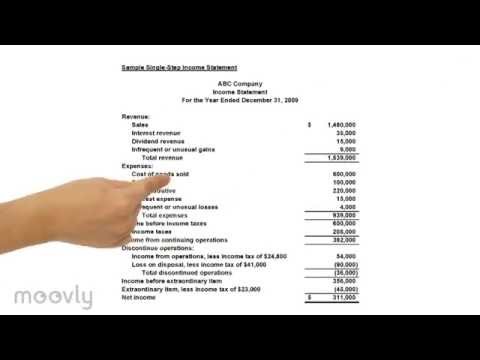
Data analytics, machine learning, and AI techniques are replacing the rules-based approach used previously by banks and credit card companies to detect payment fraud. Data mining in accounting has been shown to be more effective at detecting potential financial fraud than statistical methods because it applies machine learning to improve classification accuracy, especially when working with low sample data. Acorns is one of the leading practitioners of automated micro-investing that combines automatic savings with portfolio management. The company uses machine learning techniques to identify customers’ spending patterns and automatically categorize their transactions. Clients are automatically notified when their spending increases, and the system can even recommend a budget. With new data points continually being generated, data analytics in accounting is an ever evolving and increasingly important field.
- By understanding customer behavior, a company is better prepared to meet highs and lows in demand.
- For example, DA software can analyze customer data to identify trends, helping organizations make more informed product development investments with optimal profit margins.
- The capability to analyze massive quantities of economic data has given rise to fresh prospects for accountants and their teams to aid strategic decision-making and generate company value.
- Real-time analytics allows for quick identification of financial discrepancies and timely corrective actions.
- Accounting Data Analytics has aided in identifying the patterns and metrics that would help in strategic decision making and draw suitable conclusions.
Data Analytics in Accounting: 5 Comprehensive Aspects
By analyzing what is the matching principle historical and real-time data, Deloitte helps clients improve their financial performance, optimize operations, and make informed strategic decisions. Robotic Process Automation (RPA) and other data analytics tools automate repetitive and time-consuming accounting tasks. According to PwC, automation can reduce the time spent on financial close and reporting processes by 50% and reduce errors by 75% . This allows accountants to focus on more strategic activities, such as analysis and advisory services. Management accountants rely on data analytics to gain a better understanding of the performance of business units by identifying key patterns and trends. By monitoring key performance indicators (KPIs) such as operating cash flow, budget variance and line of business revenue versus target, management accountants can recommend business adjustments to improve performance.
Main articleInfusing data analytics into the accounting curriculum: A framework and insights from faculty☆
Accounting Data Analytics can help to ensure what exactly is a medical aesthetic clinic that the company is running smoothly, goals are being met, and performance is being maintained or improved. To get a better handle on big data, it’s important to understand four key types of data analytics. Bank of America is one of several banks that are doing away with the traditional fraud alerts that notify customers when transactions occur far from the customer’s home. Instead, the bank uses the location services that accompany its mobile banking app, whose default settings include a daily location check, to verify that customers and their cards are in the same place. At present, the service is available only for the bank’s Visa card holders, but other banks are adopting the automated fraud detection technology as well.

Tools for Data Analytics in Accounting
Excel is a spreadsheet application for Windows, macOS, Android, and iOS that is created by Microsoft. It provides a varied range of features including Calculations, Pivot Tables, Graphing Tools, etc. It is one of the robust Data Analysis tools in the market that supports multiple plug-ins to enhance the efficiency and user experience. A Risk can originate from a multitude of sources both inside and outside the company.
An international survey of accountants conducted by Sage in 2019 found that 90% of respondents believed there has been a cultural shift in accountancy. The changes are apparent in hiring practices, business services, and the industry’s approach to analytics, artificial intelligence, and other emerging technologies. The future of data analytics in accounting looks promising with continuous advancements in analytical technologies. According to a report by MarketsandMarkets, the global data analytics market size is expected to grow from $25.7 billion in 2020 to $50.9 billion by 2025, at a CAGR of 14.6% during the forecast period . Accountants are expected to continue adopting data analytics to gain a competitive edge and drive further innovation in the profession. Data analytics plays a crucial role in improving financial decision-making by providing accurate and timely insights.
Modern business transformation with the advancement of technology has modified the skills required for accounting students. They require new skills to apply modern analytical techniques in financial modeling, prediction, and data visualization to attract prospective employers. By leveraging advanced analytics tools, KPMG can analyze large datasets quickly and accurately, identifying potential risks and anomalies in financial statements. Real-time data processing enables accountants to access and analyze financial data as it is generated.
The Acorns system works by collecting the excess “change” from customers’ credit card and online transactions and automatically depositing them in their investment portfolio. Clients have the option of applying the change automatically with each transaction loan meaning or doing so manually on a per-transaction basis. Acorns’ robo-adviser applies algorithms to manage customers’ investment portfolios, which is much less expensive than relying on a human investment adviser. Businesses can use automated platforms like Hevo Data to set this integration and handle the ETL process. Deep Learning represents the deeper structure of events and situations in numerous layers of the neural network by combining the information with more advanced methods.
Accountants with a background in data analytics qualify for a far greater range of positions in accounting and finance. The growing adoption of data analytics in accounting and finance firms broadens the responsibilities of the professions while making their roles more important for supporting business decisions. Data analytics is revolutionizing the accounting profession by providing deeper insights into financial data, enhancing decision-making processes, and increasing operational efficiency.

